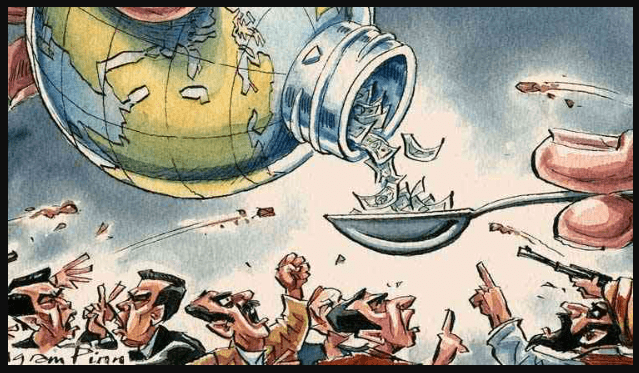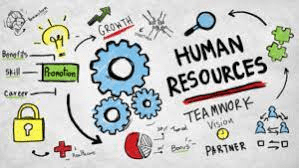
Powered by Froala Editor
Natural disaster is the gift for us not curses
Powered by Froala Editor
In Bangladesh, natural disasters are a frequent occurrence, with cyclones, floods, and droughts posing significant challenges to communities and the economy. While these disasters undoubtedly cause immense destruction and hardship, they can also serve as catalysts for positive change and resilience.
Natural disasters as a curse:
Bangladesh's geographical location along the Bay of Bengal makes it highly vulnerable to cyclones, which can bring devastating winds, storm surges, and heavy rains. These cyclones have caused widespread damage, including the loss of lives, homes, crops, and infrastructure.
Floods are another major challenge for Bangladesh, with rivers regularly overflowing their banks during the monsoon season. Floods can displace populations, contaminate water sources, and damage agricultural land, leading to food insecurity.
Droughts, while less frequent, can also have severe consequences for Bangladesh's agriculture-dependent economy. Water scarcity can impact crop yields, leading to food shortages and price hikes.
Natural disasters as a gift:
Despite the immense challenges they pose, natural disasters can also trigger positive outcomes in Bangladesh.
Firstly, they serve as stark reminders of the country's vulnerability to natural hazards, prompting efforts to enhance disaster preparedness and mitigation measures. This includes building disaster-resistant infrastructure, developing early warning systems, and educating communities on disaster risk reduction.
Secondly, natural disasters can foster a spirit of resilience and collaboration among communities. As people come together to rebuild their lives and homes, they develop stronger bonds and a shared sense of purpose. This resilience can be harnessed to address other challenges and promote community development.
Moreover, natural disasters can spark innovation and creativity in disaster response and management. Communities may develop new technologies, protocols, or approaches to address the specific challenges they face. This can lead to improved disaster preparedness and response capabilities.
Harnessing the powerDiscrete vs. continuous of disasters:
The key to turning natural disasters from curses into gifts lies in effectively managing their impact and leveraging the opportunities they present. This requires a holistic approach that includes:
Strengthening early warning systems and evacuation plans: Early detection and timely evacuation can significantly reduce the loss of life and property during natural disasters.
Prioritizing disaster-resistant infrastructure: Building structures that can withstand the forces of nature can minimize damage and ensure the continuity of essential services.
Promoting community preparedness and education: Educating communities about disaster risk reduction, evacuation routes, and safety measures can empower them to protect themselves and their families.
Fostering innovation and technology development: Encouraging the development of new technologies and approaches to disaster management can enhance response capabilities and reduce the impact of future disasters.
By understanding the potential for positive change amidst the devastation caused by natural disasters, Bangladesh can build a more resilient and disaster-resilient society.
Powered by Froala Editor

Powered by Froala Editor
Moral values of our young generation are influenced by western culture
Powered by Froala Editor
Now a day‟s every country in this world is treated as village, you can imagine whatever you can.That‟s the way people are communicate easily to each other make things differences. Globalization has only one overarching feature – integration. It is all about collectiveness and everincreasing interconnectedness. It in effect influences everything, whether it is a company or acountry. But here is a fact, is globalization all the way keeps help to connect to each other or build a strong communication in “borderless world”? If it is a question, then how it impacts in our society as well as in our culture?The Cable television has made different attraction in around the world as well as in Bangladeshihousehold. Foreign movies have come and have reflected their culture in it. This has made ahuge impact on the minds of the Bangladeshi people. Not to mention the easy availability ofInternet whose reach even extends till rural areas? The internet has opened up opportunities for people to learn more about foreign cultures and places. It has made Bangladeshi more acceptableand open-minded towards change. Globalization has broken all borders. As a result, the newgeneration of Bangladeshi is more knowledgeable, more aware and more interested in the worldaround them.In our society, women who were once the exploited and ignored part of the population, nowassert their rights of being a woman. Women now have more access to education and know moreabout their rights and their identity as a woman. Nowadays, you find women in the society whowork alongside men. Men-dominated fields see the coming up of the woman. Men and womenare slowly being treated equally. However, this does not mean that all Bangladeshi women arefully free. In many places, exploitation still continues. Positive impact of westernization Due to globalization, westernization is spreading out all over the world. Westernization has been placed in different countries because of globalization and needless to say, it has had an impact onthe Bangladesh way of life. It has out-rooted the traditional Bengali culture and the rate at whichwesternization is happening to Bangladesh is surprising. Regional languages are on the processof redefined. In many ways instating of regional language people have been used to Englishespecially in urban areas youngsters. It had started get fixing with western clothing, westernlanguages, western mannerisms and everything else westernized. Beside, the festival of Pohela Baishak people is now celebrating like other western culturalfestivals especially in young group such as- Valentine's Day, Friendship Day, Mother's day, Father's day. And other international celebrations. Now a day people are concern about how we think about globally, what the other country aredoing in their cultural issue, just we observe and absorbing them. There is lot of issues that weautomatically know about it; even he/she has a little knowledge about westernization. But, people are moving with it in all the way. Negative impact of westernization At the side of the positive, Bangladeshi people are involving day by day with negative activitieswhich our own culture because of following western culture. However no matter have occurred by this way, what people are doing in our society.With Globalization and westernization of our culture, Bangladesh now has access to things likeadult movies, pornographic material, sex toys and other sexual content from all around the world especially in young group of people. Bangladeshi‟s population has been corrupted thanks by easy access which has been brought about by westernization. In fact, this has gone to such limits thatnow pornographic material is even made in Bangladesh also. These perverted habits have raiseda population who sometimes are so full of hunger for that they choice to rape. It is a fact thatrape cases have risen since the spread of globalization.So that, western dress is another factor that creates an imbalance in our society especially forwoman group (whenever girls wear a shirt, t-shirt, and pant in our society, due to feel orsensation of comfortable) which does not permit within our culture as majority of Muslimnationality. For wearing that kind of dresses men are mostly thinking in negative sense.
More Information:
he pervasive influence of Western culture, particularly through media and popular culture, has undoubtedly impacted the moral values of Bangladesh's younger generation. While this exposure to global trends and perspectives can be beneficial in fostering openness and understanding, it has also raised concerns about the erosion of traditional values and ethical norms. One of the most significant impacts of Western culture on Bangladeshi youth is the shift towards individualism and self-gratification. Western media often glorifies consumerism, materialism, and personal fulfillment, promoting a culture of self-promotion and instant gratification. This emphasis on individual desires can clash with traditional Bangladeshi values that emphasize family, community, and collective responsibility. The rise of social media has further exacerbated this trend, providing platforms for self-expression and validation through likes, comments, and follower counts. Young people may become preoccupied with curating an online persona that aligns with Western ideals of beauty, success, and popularity. This pursuit of external validation can lead to a distorted sense of self-worth and a disregard for deeper values such as compassion, empathy, and integrity. Another area of concern is the increasing acceptance of Western attitudes towards sexuality and relationships. Western media often portrays casual hookups, premarital sex, and open relationships as normal and desirable. This can lead to a disconnect between the values instilled in Bangladeshi families and the messages conveyed by Western media. Young people may question traditional norms of modesty, fidelity, and respect for elders, potentially leading to risky behaviors and unhealthy relationships. Moreover, the influence of Western culture can contribute to a decline in respect for authority and tradition. In Bangladesh, there is a strong hierarchical social structure with respect for elders and established norms. However, Western media often portrays rebellious and non-conformist behavior as admirable. This exposure can lead to challenges in upholding traditional values of respect, obedience, and deference to authority figures. Despite these concerns, it is important to understand that Western culture also offers positive influences. Exposure to global trends and perspectives can broaden young people's horizons, promote tolerance, and foster a more inclusive society. It can encourage critical thinking, open-mindedness, and the exploration of diverse ideas and perspectives. Therefore, the key lies in striking a balance between embracing the benefits of global exposure while maintaining the core values that define Bangladeshi culture. Parents, educators, and community leaders play a crucial role in guiding young people towards a well-rounded understanding of both traditional and contemporary values. By fostering a culture of open communication, critical thinking, and ethical decision-making, we can empower our youth to navigate the complexities of a globalized world while preserving the essence of their cultural heritage.
Powered by Froala Editor

Powered by Froala Editor
Money is the root of all happiness
Powered by Froala Editor
Lately, I found myself caught in between the social ethics of whether money is the root of all evil. Or is it the root of all happiness? I look around me, and wonder “how on earth does anyone be remotely happy without money?”
I’m guessing that the first thought that pops into our heads is monks.
Monks, whom we all believe to isolate themselves from the world and all material possessions in seek of innate peace and solitude and doing good.
Now unless you’re telling me that the land, the temple, the furniture and the statues are handmade, are you sure they are all not bought?
Most of us, I mean the 20 somethings who are struggling with financial burdens, be it the lack of allowance, or the consistent running out of money, we find ourselves cooping up at home in the hopes that the bank balance would remain the same and not decrease.
Yet, money is seeping out from everywhere while we’re at home, just that we’re not wearing the financial spectacles of where the money is going.
The computer electricity, the wireless subscription, modem electricity, water and utilities bill, the oil when we cook …
These are just some of the simple things where our parents are bearing the financial brunt of our idea of saving money.
Whoever said money can’t buy you happiness didn’t know where to shop – Blair Waldof
Now, is she wrong?
If you knew where to shop, you would be able to get yourself the best goods at the best price, assuming that the best goods refers to necessities ie refrigerator, bed, mattresses, wardrobes.
I spent my college days reading up and arguing about how money is the root of all evil and I’ve always been battling with the questionability of this concept.
I mean, who said this?!
So now I’m feeling really sour about money because I am currently a really broke student, who wants to get married in, possibly the next 5 years, and by then secure an apartment BUT not being able to do so because guess what, money isn’t enough and I haven’t started saving.
To all my fellow broke 20 somethings, let us all mourn over our lack of money and continue living in financial blindness till our parents throw us out, but in the meantime, try to work a little harder, put some of that screaming-to-be spent cash into the bank and perhaps one find day, when money no longer is an issue ….
Oh wait, unless I’m a celebrity, I will possibly be nowhere near even saying ‘I have enough money’.
I always knew this life was sad.
In conclusion, money is the damn root of all happiness.
Powered by Froala Editor

Powered by Froala Editor
Modern science is blessing or curse
Powered by Froala Editor
Nothing has shaped the trajectory of human existence quite like modern science. From the simplest household tasks to the most intricate facets of our lives, science has orchestrated a complete overhaul of our surroundings. It has empowered humanity to unravel the enigmatic mysteries of the universe and venture into realms that were once deemed inconceivable.
Modern science not only bestows personal empowerment but also stands as a linchpin in the progress of entire nations. Much like the Renaissance period that pulled Europe out of the abyss, science acts as a guiding light, catalyzing societal transformation. The gift of instant communication exemplifies one of science's myriad benefits. Messages that once traversed vast distances over months now traverse the globe in mere seconds. Bullet trains and airplanes have compressed what used to be months-long journeys into mere hours. Diseases that once ravaged entire populations are now tamed with the efficacy of a single vaccine.
However, amid these triumphs, science has ushered in its own set of challenges. In this era of cutting-edge technology, with the creation of formidable arsenals like nuclear weapons, the human race teeters on the brink of self-destruction. The emission of toxic gases imperils the ozone layer, posing a threat to billions of lives globally. Contemporary issues such as glacier melt, rising temperatures, and sustained flooding loom large on our collective horizon.
Yet, as a tool, science itself is neutral—it is neither inherently good nor bad. Its moral compass is guided by the intentions of those who wield it. The responsibility lies with humanity to harness the power of science for collective upliftment and ensure a brighter future for generations to come. Instead of leaving behind a legacy of destruction, let us wield the force of modern science to build a world that thrives on progress, compassion, and sustainability.
Powered by Froala Editor

Misuse of electricity is the main cause of Load Shedding
The term "load shedding" refers to the controlled interruption of electricity supply to certain areas to prevent a complete blackout. This is typically done when there is a shortage of electricity generation or transmission capacity to meet the demand. While misuse of electricity is indeed a contributing factor to load shedding, it's not the sole cause. Other factors also play a significant role in causing power outages.
1. Inadequate Generation Capacity: The primary cause of load shedding is often a shortage of electricity generation capacity. When the demand for electricity exceeds the supply, power stations may not be able to generate enough electricity to meet the needs of all consumers. This can lead to load shedding as a way to balance supply and demand.
2. Transmission and Distribution Losses: Electricity lost during transmission and distribution can also contribute to load shedding. Transmission losses occur when electricity is transmitted over long distances, and distribution losses occur when it's distributed to homes and businesses. These losses can reduce the available electricity supply and increase the likelihood of load shedding.
3. Unplanned Outages of Power Plants: Unplanned outages of power plants due to equipment failures, maintenance issues, or natural disasters can also lead to load shedding. These outages can disrupt power supply and necessitate controlled interruptions to prevent a complete blackout.
4. Increased Electricity Demand: Growing electricity demand, particularly during peak hours, can put a strain on the power grid. If demand exceeds available supply, even for short periods, load shedding may be necessary to prevent a collapse of the grid.
5. Weather Events: Severe weather events such as storms, floods, and extreme heat can disrupt power generation, transmission, and distribution, leading to load shedding. Damage to power infrastructure, outages caused by downed power lines, and disruptions to fuel supplies can all contribute to power outages during these events.
6. Inefficient Energy Usage: Misuse of electricity, such as excessive use of air conditioners, appliances, and other energy-intensive devices, can exacerbate the problem of load shedding. When consumers overuse electricity, it puts more strain on the grid and increases the likelihood of power outages.
7. Lack of Infrastructure Maintenance: Inadequate maintenance of power infrastructure, including power lines, substations, and transformers, can increase the risk of outages. Outdated equipment, corrosion, and poor maintenance can all contribute to disruptions in power supply.
8. Corruption and Inefficiency: In some cases, load shedding may be used as a political tool or to conceal inefficiencies in the power sector. Corruption, mismanagement, and a lack of transparency can contribute to these issues.

Powered by Froala Editor
Lack of sports facilities at school level is the only cause for failure in international sports
Powered by Froala Editor
Bangladesh has made significant strides in developing its sports infrastructure and programs in recent years. However, the country still faces challenges in achieving consistent success in international competitions. While lack of sports facilities at school level is a contributing factor, it is not the sole cause for Bangladesh's limited performance in international sports.
Here are some of the additional factors that contribute to Bangladesh's challenges in international sports:
Lack of access to quality coaching: Bangladesh has a limited pool of qualified coaches, particularly in specialized sports such as swimming, gymnastics, and athletics. This lack of expertise hinders the development of young athletes and limits their ability to reach their full potential.
Inadequate training facilities: While the government has made investments in sports infrastructure, many training facilities are still inadequate or outdated. This lack of access to high-quality training facilities puts Bangladeshi athletes at a disadvantage compared to their counterparts in developed countries.
Lack of funding and support: The overall funding for sports development in Bangladesh is relatively low. This limited funding affects the ability to provide adequate coaching, training, equipment, and travel expenses for athletes, hindering their ability to compete at international levels.
Cultural attitudes towards sports: Sports are not always highly valued or encouraged in Bangladeshi society. This can discourage young people from pursuing sporting careers and limit the pool of talent available for international competition.
Competition from other priorities: In a developing country like Bangladesh, education and financial stability often take precedence over sports participation. This can lead to fewer young people pursuing sports as a career option, reducing the pool of talented athletes.
To address these challenges and improve Bangladesh's performance in international sports, the following measures can be implemented:
Invest in coaching programs: The government and sporting organizations should prioritize investing in coaching programs to train and develop qualified coaches. This includes providing training opportunities, mentorship programs, and incentives for experienced coaches to work in Bangladesh.
Develop high-quality training facilities: The government should continue to invest in developing high-quality training facilities, particularly in specialized sports. This includes building new facilities, upgrading existing ones, and ensuring that they are equipped with state-of-the-art equipment.
Increase funding for sports development: The government should increase funding for sports development programs to provide adequate resources for coaching, training, equipment, and travel expenses. This can be achieved through increased government allocations, sponsorships, and fundraising efforts.
Promote sports culture: The government and sporting organizations should actively promote sports culture in Bangladesh by encouraging participation in sports from an early age. This includes organizing tournaments, school sports programs, and public awareness campaigns.
Balance academics and sports: The education system should encourage balance between academic pursuits and sports participation. This can be achieved by incorporating sports into the school curriculum, providing time for physical education, and encouraging extracurricular sports activities.
Powered by Froala Editor

Powered by Froala Editor
Lack of opportunity is the cause of Brain drain
Powered by Froala Editor
Brain Drain may seem like a term directly pulled out of a sci-fi story. However, it is entirely grounded in reality. It has always been a part of human history as talented and skilled individuals migrate to other countries from their homeland for better living standards.
This usually results in losing valuable, competent, and skilled individuals of a less developed country, industry, or company to a highly developed one. In recent years, it has become more of a cause for concern for developing countries, as it can potentially stagnate the development of an entire nation.
According to a UNFPA report, Bangladesh is currently enjoying a demographic dividend. That is to say, we have a window of opportunity where the unique population ratio reflects that our nation has a significant working population.
As of 2021, the population demographic of Bangladesh indicates that close to 40% of the population is between 15-35 years old, meaning these young individuals can quickly learn new things, undertake new tasks, and work more to impact the economy by improving their own lives.
A large portion of the population who are young, are vital for creating business, generating jobs, and ultimately accumulating wealth for the nation. But it will only pay off if we invest heavily in healthcare, education, and skills development to unlock the potential of these young individuals and capture the returns.
Five years ago, a survey created a lot of stir in Bangladesh, when a World Economic Forum study showed that 82% of the population aged between 15-29 would prefer to migrate abroad.
We believe many of those young people with an intention to leave have already left. If one just looks around, one will undoubtedly find at least some people who have migrated to North America, Europe, or Australia in the past few years.
Now, for Bangladesh or any of the developing countries, it is nothing new, as brain drain is a pretty common phenomenon. When the economy fails to provide jobs and opportunities for the youth, a large portion of the skilled workforce is forced to move abroad to find scope for growth, employment, and a better life.
But according to a prediction of the Asian Development Bank (ADB), Bangladesh is projected to have a GDP growth rate of 6.8% and 7.2% respectively, in 2021 and 2022. Despite the global pandemic, the mysterious and miraculous Bangladeshi economy prevailed.
The country is scheduled to graduate from the ranks of the Least Developed Countries (LDCs) to a middle income country by 2024. The government's commitment to development has earned us the applause of the world at the UN and has given us the SDG Progress Award by the Sustainable Development Solutions Network (SDSN).
Yes, 20-years ago, it would have made sense for an aspiring young individual to leave the country, their friends and family, their community and a life they have known since birth for carving out a better one in a foreign nation. But why is it happening right now?
This happens due to two distinct factors, push and pull factors. One of the major push factors is the lack of quality higher education opportunities. According to UNESCO, an average of 90,000 students left for the USA alone for higher education. Scientists and scholars get little incentive to invent and create new knowledge in our country.
On the flip side, the primary pull factors are better career opportunities, quality higher education, social security, freedom of choice, etc. Both these factors contribute to skilled individuals departing from their homeland for good.
It should be acknowledged that a good few cases of reverse brain drain are also taking place in Bangladesh, where successful professionals and investors are returning to Bangladesh to invest in its growing economy.
They invest in startups, innovative entrepreneurial ventures, and social businesses, but the numbers are not nearly enough to make up for the outflow of talent. Data sourced from Fund for Peace indicates a 7.6 index point for Bangladesh's brain drain in 2019.
To give it a better perspective, the average in 2019 was 5.55 index points, and even our neighboring nation, India, had an index point of 6.1, which is much lower than us. Afghanistan, Sudan, Syria, and Somalia also have slightly higher index points than us.
All of these countries scoring worse than Bangladesh are underdeveloped, which is a significant determinant of brain drain.
According to past surveys, most people who intended to leave the country answered that the rationale for leaving the place they have known for their entire life is not all economic. They were looking for a "better life", a life with more social and financial security.
With the growing opportunities around the planet and due to the moderately lower population growth and skill shortage in many developing countries, Bangladesh is destined to lose a significant portion of its intelligent population.
Just as an organisation has a cost of turnover, these migrations have a cost too.
The skills have been nurtured and developed in our country, but we have failed to attract them to stay.
If we do not act soon, it will be too late; we will see an increasing number of people from Bangladesh leave the country and move on for a better life, investing their skills to advance another country's economy.
The government must move fast to create lucrative opportunities for skilled citizens so that they are not tempted to leave.
It will also be a reassurance mechanism for the rest of the population, motivating future generations to work for the development of their nation, instead of working for a foreign one.
The author is a lecturer of Strategy, Management and HR at the Department of Management School of Business & Economics of North South University.
Powered by Froala Editor

Powered by Froala Editor
It is the students not the teachers who maintain the educational atmosphere in the educational institutions
Powered by Froala Editor
The dynamics within educational institutions are often influenced by a myriad of factors, with the role of students being paramount in maintaining the overall educational atmosphere. While teachers play a significant role in imparting knowledge and guidance, it is the students who contribute significantly to shaping the environment within these institutions.
Student-Centric Factors:
Peer Interactions and Relationships: Students are the primary architects of their social milieu. Interactions among peers, the formation of friendships, and the development of a collaborative learning culture all hinge on the active engagement and choices made by students.
Academic Integrity and Ethical Standards: Upholding academic integrity is a responsibility that lies heavily on the shoulders of students. The commitment to ethical standards, such as avoiding plagiarism and promoting fair play, contributes to a positive educational atmosphere that fosters genuine learning.
Participation in Extracurricular Activities: The vibrancy of educational institutions often stems from students' involvement in extracurricular activities. Whether it's clubs, sports, or cultural events, students drive the diverse and dynamic nature of these extracurricular pursuits, contributing to the overall educational experience.
Respect for Diversity and Inclusivity: Students play a pivotal role in fostering an inclusive and diverse atmosphere. The acceptance of different perspectives, backgrounds, and ideas creates a rich learning environment that goes beyond the confines of the curriculum.
Responsibility for Institutional Resources: Students are stewards of the institutional resources provided for their education. Responsible use of facilities, libraries, and technological resources contributes to a positive atmosphere that benefits the entire academic community.
Teacher-Student Collaboration:
While students hold a crucial role in maintaining the educational atmosphere, it is essential to acknowledge the symbiotic relationship between students and teachers. Effective collaboration between educators and students enhances the overall quality of education, creating a positive feedback loop that reinforces a healthy learning environment.
Conclusion:
In educational institutions, the assertion that it is the students, not just the teachers, who maintain the educational atmosphere underscores the agency and influence students have in shaping their own educational journey. Emphasizing the significance of student engagement, responsibility, and collaboration fosters a holistic approach to education, understanding that the vitality of the learning environment relies on the active participation and choices made by the students themselves.
What Is A Student-Teacher Relationship?
A student-teacher relationship in the classroom is a positive relationship between the teacher and the student in efforts to gain trust and respect from each other. This relationship may consist of getting to know your students better, providing choice and encouraging the students to become stronger learners everyday. By doing this teachers are showing respect to their students, valuing their individuality and being polite. Having a positive relationship with your students helps them become more successful in the classroom as well as makes your classroom a safe and welcoming environment for all.
Ways To Build A Student-Teacher Relationship
There are many tips and tricks that can be used to build a strong student teacher relationship. One way that a strong student teacher relationship can be created is by making it apparent that the teacher cares about the students (“6 Ways to Build Strong Teacher-Student Relationships with SEL”, 2022). This can be done by talking with your students, such as asking about their day. Another way could be by listening to your students, this can be done by hearing their opinions, taking into account their interests, and by learning each student’s unique learning styles (“6 Ways to Build Strong Teacher-Student Relationships with SEL”, 2022). As well you can develop mutual trust with your students, such as providing them with choices and always having their best interest in mind (“6 Ways to Build Strong Teacher-Student Relationships with SEL”, 2022). In addition, you always have to be respectful and fair with each and everyone of your students (“6 Ways to Build Strong Teacher-Student Relationships with SEL”, 2022). You can ensure this by not picking favorites and having the same corrected behavior for each student. Furthermore, you can get to know your students and their families. This can be done by paying attention to your students during class and offering them opportunities to talk or share what they want about their families. Lastly, by giving your students positive words of encouragement and constructive criticism (“6 Ways to Build Strong Teacher-Student Relationships with SEL”, 2022). This is important due to the fact that it creates trust with your students, as they know they can rely on you to be honest. Of course, there are many other alternative ways to build a positive student teacher relationship, but these are some great examples of how to start.
Advantages of a Student-Teacher Relationship
Student- teacher relationships have displayed many advantages in the classroom. To start, students who share a positive relationship with their teacher develop stronger social-emotional skills. In addition, these students are more likely to absorb an increased amount of academic knowledge (Positive teacher-student relationships have cascading benefits, 2021). The result of a strong student-teacher relationship is that it allows students to feel confident through exploration and taking risks in their academic tasks. In short, students who have a positive student-teacher relationship demonstrate a stronger performance in the classroom (Positive teacher-student relationships have cascading benefits, 2021). However, one of the most important impacts of a positive student-teacher relationship is the production of an environment that incorporates mutual respect. One way an educator can produce a strong relationship with a student is to explicitly define learning goals and expectations in a positive manner. This could look different for groups of students or individual students. The strong relationship will allow for educators to be aware of their students’ learning and adjust their learning goals and expectations as needed (Admin, 2017). In the same manner, the educator should allow opportunities for students of all learning styles to participate in class discussions through oral and written communication. In addition to academic advantages, positive student-teacher relationships improve mental health and assists students in developing self-worth (Admin, 2017). Oftentimes, students look up to their educators as mentors. With this in mind, students are likely to feel pride when the educator encourages them in their learning and social interactions. Social competence, problem-solving abilities, autonomy, and a feeling of a bright future or purpose are protective elements that boost resilience, these all can be developed in a supportive teaching atmosphere (Bondy et al., 2007). As noted, students benefit from positive student-teacher relationships. Likewise, educators benefit as well. While creating strong relationships with their students, educators are strengthening their own interpersonal and professional skills (Admin, 2017). By strengthening their interpersonal communication skills, educators are more likely to respond effectively to stressful situations. In addition, educators are able to form relationships with parents and coworkers. In summary, it can be noted that students and educators equally benefit from the creation of positive student-teacher relationships.
The Importance Of Student-Teacher Relationships: Short and Long Term
As stated, student-teacher relationships are highly essential in an effective classroom. Specifically, student-teacher relationships are important for students in their short term and long term education. Student-teacher relationships are important in the short term because it creates a thriving classroom environment, helps students develop self worth and improves student mental health (Buffet, 2019). In the same manner, these positive relationships may decrease behavioral problems and promote academic success. Student- teacher relationships help foster the academic success of students. With this being said, student-teacher relationships assist students in the short term. These relationships support students for the specific year they spend in that educational setting with the educator (Buffet, 2019). Likewise, a positive student-teacher relationship is very important in the long term because it gives students confidence as well as ensuring that they know that their ideas are valuable. In turn, this allows students to carry this confidence throughout their future years pursuing academics. Also, this confidence and recognition of self-worth can be seen in social and emotional aspects of the students life. Another long term effect is that positive teacher relationships teach students that mistakes are an indication that they are learning. Learning is ongoing and students are able to identify this through the production of positive student-teacher relationships. This type of relationship will foster confidence in the long-term for the student.
Causes of Poor Student Teacher Relationships
Poor teacher-student relationships result from the instructor’s lack of awareness. Some students require tailored educational approaches since they do not respond to learning in the same way as others. When a teacher fails to regard an individual student’s educational needs, relationship problems between teachers and students arise. Each student’s ability to learn and interact with educators is influenced by their personality, family backgrounds, mental processes, learning styles, priorities, maturity levels, and academic ambitions (Tucker, 2021). When possible, teachers should treat each student as an individual who deserves one-on-one attention and specialized, concentrated education. In addition, a poor student-teacher relationship will develop if the educator’s main or only priority in the classroom is academics (Tucker, 2021). In correspondence with academics, students need to feel cared for and have the chance to feel strong emotions. Educators are responsible for building relationships with students that are not surface level or academically focused. Students should feel that their educator is someone they can trust and communicate freely with. The lack of empathy displayed by an educator can result in a poor student-teacher relationship.
Powered by Froala Editor

Powered by Froala Editor
Internet is our social curse not blessing
Powered by Froala Editor
The internet has become an integral part of our daily lives, connecting us with the world and providing us with a vast array of information, resources, and entertainment. However, as with any technology, the internet also has its downsides. In this essay, I will argue that while the internet can be a blessing, it can also be a curse.
On the one hand, the internet is a blessing in many ways. It has revolutionized the way we communicate, making it easy and convenient for people to stay in touch with friends and family, regardless of where they are located.
Social media platforms like Facebook, Twitter, and Instagram have made it possible for people to connect with others from all over the world, fostering a sense of global community and understanding. The internet has also made it easier for people to access information and resources. From educational resources to job postings, the internet has made it possible for people to access information quickly and easily.
Furthermore, the internet has also become a powerful tool for businesses. E-commerce platforms like Amazon, Etsy, and Alibaba have made it possible for small businesses to reach a global market, increasing their potential for growth and success. This has also made it possible for consumers to access a wider range of products and services, increasing competition and driving prices down.
However, the internet also has its downsides. One of the biggest concerns is the issue of privacy. With the rise of social media and other online platforms, personal information is readily available to anyone who wants to access it. This has led to an increase in identity theft and other forms of cybercrime. Additionally, the internet has also made it easier for hackers and other cybercriminals to access sensitive information, putting businesses and individuals at risk.
Another concern is the issue of addiction. The internet is designed to be addictive, with constant notifications, updates, and new content to keep people engaged. This has led to an increase in internet addiction, with people spending excessive amounts of time online and neglecting other important aspects of their lives. This can have a negative impact on mental health, relationships, and overall well-being.
The internet has also had a negative impact on the way we consume information. With the abundance of information available online, it can be difficult to distinguish between credible sources and fake news. This has led to a decrease in critical thinking and an increase in misinformation, which can have serious consequences for individuals and society as a whole.
In summary, the internet can be both a blessing and a curse. It has revolutionized the way we communicate, access information, and conduct business. However, it also has its downsides, including privacy concerns, addiction, and the spread of misinformation.
It is important that we are aware of these downsides and take steps to mitigate them. This includes being mindful of the amount of time we spend online, being cautious about the personal information we share, and being critical of the information we consume. The internet can be a powerful tool, but it is up to us to use it responsibly.
More Information:
The internet, hailed as one of humanity's greatest inventions, is a double-edged sword that has fundamentally transformed the way we communicate, work, and live. While it brings unparalleled connectivity, information access, and efficiency, it also carries the weight of social challenges, leading some to label it as more of a curse than a blessing. The Curse: Digital Divide: The internet exacerbates social inequalities by creating a digital divide. Not everyone has equal access to information and opportunities, perpetuating societal disparities and limiting the potential for widespread benefit. Social Isolation: Paradoxically, the internet, designed to connect people globally, can foster social isolation. Increased screen time and reliance on virtual interactions have been linked to feelings of loneliness and disconnection from the real world. Cyberbullying and Harassment: The anonymity provided by the internet has given rise to cyberbullying and online harassment, with detrimental consequences on mental health. Social media platforms, in particular, can become breeding grounds for toxicity and negativity. Erosion of Privacy: The internet's pervasive presence has eroded personal privacy. Data breaches, surveillance, and the commodification of personal information have become prevalent concerns, challenging the very fabric of trust in online spaces. Misinformation and Echo Chambers: The ease with which information spreads on the internet has led to the proliferation of misinformation. Social media algorithms contribute to the creation of echo chambers, where individuals are exposed only to perspectives that align with their existing beliefs, fostering polarization and limiting open discourse. The Blessing: Global Connectivity: The internet has facilitated global connectivity, allowing individuals to communicate and collaborate across borders. This interconnectedness has spurred cultural exchange, business collaborations, and the sharing of knowledge on an unprecedented scale. Information Access: Instant access to vast amounts of information has democratized knowledge, empowering individuals to learn, innovate, and engage with a breadth of perspectives. Educational resources, research findings, and diverse viewpoints are just a click away. Remote Work and Collaboration: The internet has revolutionized work dynamics, enabling remote work and collaboration. This has proven particularly valuable during global challenges like the COVID-19 pandemic, providing continuity to businesses and fostering flexibility in work arrangements. Economic Opportunities: E-commerce, digital entrepreneurship, and online platforms have created new economic opportunities, especially for small businesses and individuals. The internet serves as a marketplace for innovation and entrepreneurship. Social Activism: The internet has amplified voices for social justice and activism. Movements advocating for change, awareness campaigns, and grassroots initiatives find a global audience through social media and online platforms.
Powered by Froala Editor

Powered by Froala Editor
Globalization makes poor more poor and rich more rich
Powered by Froala Editor
How does capitalist system make rich richer and poor poorer?
This is a very timely and good question. In recent last 10 years, there seems to be something wrong with capitalism which results in the new generation to remain poor despite working hard. While I am not sure if the rich get richer, the poor seems to be poorer in the current system.
The basic appeal of capitalism is that if you work hard, you can be successful economically. This is the basis of the American Dream which allows the younger generation without much accumulated wealth to succeed equally versus the older generation. Unfortunately, this has not worked out for the current younger generation worldwide who started working between 2008 to 2013.
Initially, the generation that started to work in this period faced difficulties finding secure jobs because the economy has not recovered. Furthermore, starting wages were not as attractive as usual. By 2008 to 2009, there were some recovery in the system but the wages did not increase significantly. From 2008 to 2015, wages stagnated in many developed countries which is a very long period of time. So this generation did not enjoy significant increase in income even though they work very hard during the mild economic recovery. On this basis alone, capitalism has not work for them. But things may just get worst.
At the start of their career in 2008, this generation do not have money to buy houses due to lack of savings. Low wages means it takes longer to save up for a house. Five years later, in 2012 to 2013, housing prices are up again due to low interest rates. So these workers have to borrow significant amounts of money to buy houses at a higher price. By the time it is 2016 and 2017, the stock market is trading at sky high valuations similar to year 2000 before the dot com crash. This is also the time when these workers have just accumulated some savings after spending on housing. So they start to invest in the stock market just when things are so expensive.
A common theme among this generation is that working is not going to generate enough income to retire, so you have to invest in something because bank savings interest rates are so low and wages are also low. Many decided to roll the dice and invest in risky investments like Bitcoin to try to get rich. The worst part is that many decided to borrow significant amounts of money to buy houses because they believe that interest rates are going to be low and house prices are going to go up for many more years to come.
Unfortunately, interest rates have begin to rise in 2018 and this is bad on two fronts. Firstly, this will likely cause asset prices to drop significantly and this generation will suffer losses if the houses they bought drop a lot in price. Secondly, they may have to pay off their debt which they incurred to buy the houses in the first place. This will further reduce the income that they have left for spending. This maybe particularly pronounced at major city centers like Hong Kong, Toronto, Sydney, New York, and London. If asset prices drop, this generation will lose their last hope for success in capitalism.
Imagine a working class worldwide with not enough wages, not enough bank interest on savings who just lost their precious savings in a crash. Further, they have to pay back their debts. What would happen? More likely than not they will have to delay starting families, and work longer hours.
In short, the current system has favour people with more capital at the beginning of year 2008 to 2009 because the only game in town was asset price appreciation. In general, wages didn’t work for most people.
Arguably, everybody loses money if there is another financial crisis. In fact, people with more capital loses more money. The main difference is leverage or debt levels. Although people with more capital loses more money, they still can survive if they have sufficient capital left without any debt to pay off. For people who don’t have money to begin and borrowed significant amounts of money, a crash will wipe them out. So technically, higher debt levels and stagnating wages over time among the poorer maybe the reason why the poor get poorer. In particular, when you have a whole generation of working class that had not much choice but to borrow money, this problem becomes more concentrated in one cohort of workers. But it does not mean the rich get richer because they will lost money too.
More Information:
Introduction: Globalization, the interconnectedness of economies and societies worldwide, has been a defining feature of the contemporary world. While it has ushered in unprecedented economic growth and cultural exchange, it has also been a double-edged sword, exacerbating existing socioeconomic inequalities. The rich have become richer, and the poor, unfortunately, more impoverished, as globalization's benefits and drawbacks are distributed unevenly. The Rich Get Richer: One of the primary consequences of globalization is the amplification of wealth accumulation among the affluent. Transnational corporations and globalized financial systems allow the wealthy to exploit favorable conditions in various countries, often at the expense of the less privileged. Multinational corporations can take advantage of lax regulations and low labor costs, further concentrating wealth in the hands of a select few. Moreover, the interconnected global economy has enabled the affluent to diversify their investments across borders, mitigating risks and maximizing returns. This ability to exploit global financial systems has led to an unprecedented accumulation of wealth, creating a global elite that transcends national boundaries. The Poor Get Poorer: Conversely, the impact of globalization on the impoverished has been less favorable. While economic growth has been a hallmark of globalization, it has not translated into equitable distribution of wealth. Developing nations often find themselves on the losing end of global trade, facing unfair terms and conditions that perpetuate their dependence on more economically powerful nations. Global competition can also lead to job displacement in less developed regions, as industries move to countries with lower production costs. This not only contributes to unemployment but also fosters a cycle of poverty, as these communities struggle to adapt to the rapidly changing economic landscape. Addressing the Imbalance: To mitigate the negative impacts of globalization, a concerted effort is required on both national and international levels. Developing nations must work collectively to negotiate fair trade agreements that prioritize sustainable development and social justice. Additionally, there is a need for global financial reforms that promote transparency, accountability, and the equitable distribution of resources. Conclusion: Globalization has undoubtedly reshaped the world, bringing about economic prosperity and cultural exchange. However, it has also perpetuated and intensified existing socioeconomic disparities. To ensure that the benefits of globalization are shared more equitably, there must be a commitment to addressing the root causes of inequality and fostering a global economic system that uplifts the poor while preventing the unchecked accumulation of wealth among the rich. Only through such concerted efforts can we harness the positive aspects of globalization while mitigating its adverse effects on the world's most vulnerable populations.
Powered by Froala Editor

Powered by Froala Editor
Frustration due to unemployment problem is the cause of our unsocial activities
Powered by Froala Editor
1. Introduction: Bangladesh is a small country with growing problems. Among all problems, unemployment problem is a great one. Unemployment means the state of being without any work both for the educated and the uneducated for earning one’s livehood. The problem has spread its evil clutch all over the country. It is going from bad to worse. Thousand of people in our country are jobless now. All are getting concerned with this problems.
2. Types of unemployment: There are a few types of unemployment: 1. Involuntary (most common) 2. Voluntary 3. Transient
3. Types of unemployment: Involuntary is where someone can not gain employment even though they are trying. Here a few: Lack of skills Lack of available jobs Lack of entrepreneurship Voluntary Unemployment is someone chooses not to work. The benefit system in place is too generous Too wealthy to need to work Criminal behaviour and also criminal record Transient, means that they are currently between jobs and will have a month or two off between one job and the next.
4. Causes of unemployment: Population growth Industrial backwardness lack of investment. Limited cultivable land Narrow productive work Lack of socialization Defective education system Lack of skills
5. Causes of unemployment: Mental/Physical Disabilities Laziness Attitude of our educated Youngman Mental stress Lack of self esteem Poor personality Drug addiction Kidnapping, Snatching, traffic jam and various types of social crime Abuse of political power
6. Unemployment situation in Bangladesh: According to a study of the International Labor Organization (ILO), the rate of growth of unemployment in Bangladesh currently is 3.7 per cent. The ILO figures also show Bangladesh in the twelfth position among the top twenty countries in the world where unemployment is rising. The number of the unemployed in Bangladesh now is estimated at 30 million. The way the rate of unemployment is increasing, it is feared that at this rate unemployment would soar to some 60 million by 2015. According to another estimate, every year some 2.7 million young persons are becoming eligible for jobs whereas only about 0.7 million of them are getting employment.
7. Unemployment rate: about 40% of the population is underemployed; many participants in the labor force country 1996 2001 2003 2005 2006 2007 2008 2009 2010 Bangladesh 35.2 35 40 40 40 2.5 2.5 5.1 4.8 work only a few hours a week, at low wages Source: CIA World Fact book
8. Effect of unemployment problem: Unemployment is a great social evil. It makes a man idle. There is a proverb, that an idle brain is the workshop of a devil. An idle person always indulges in mischief. So unemployment leads people to various unsocial activities which hamper the normal course of social life. Besides, lack of opportunities for employment makes people frustrated to take education.
9. Solution of unemployment problem: To solve the problem some measures may be taken. The first necessary thing for the solution of the problem is that a large number of mills, factories and firms should be set up throughout the country so that the unemployed can work there. Vocational training should be introduced and students should have some training in it. Our students and youths should be encouraged to respect manual labor and choose an independent career. The government should be honest and sincere in their plans and policies. Above all, the growth of population should be kept within reasonable limit.
10. Conclusion: Unfortunately, there is no one conclusion to unemployment. Chances are that countries will always have a rate of unemployment - even in prosperous times such as after the Second World War, there was still a rate of unemployment, although it was very low. Some economic theories such as Keynesianism suggest that the government of a country should hold employment as its top priority. Other theories such as Monetarism suggest that, by focusing government attention on strict controls on the amount of money circulating within a country's economy, unemployment will also come down.
Tamanna Tabassum Moulee Sec-BBA (4D) NUB
Powered by Froala Editor
Topic Image
Powered by Froala Editor
Foreign goods should be banned for our national development
Powered by Froala Editor
Some people argue that banning foreign goods could help boost our own economy. By limiting the availability of foreign products, they say, we can encourage people to buy locally-made goods instead. This would support our own businesses and industries, leading to more jobs and economic growth.
On the other hand, others argue that banning foreign goods could actually hurt our economy in the long run. They say that competition from foreign companies can help keep prices down and drive innovation. Plus, banning foreign goods could lead to retaliatory measures from other countries, hurting our trade relationships and limiting our access to important resources.
So, should we ban foreign goods for the sake of our national development? Well, it's not a simple yes or no answer. It's a balancing act, weighing the potential benefits against the potential drawbacks.
Yes, supporting local businesses and industries is important for our national development. But we also need to consider the benefits of global trade and competition. Perhaps instead of banning foreign goods outright, we can focus on supporting and promoting our own products while still engaging in fair trade with other countries.
Powered by Froala Editor

Powered by Froala Editor
Hartal should be banned in our society
Powered by Froala Editor
Renowned teacher and columnist Syed Manzoorul Islam of Dhaka University has pointed out the ineffectiveness and immoral idea of hartal to achieve any goal or political advantage in his write-up in a national daily. He said that hartal cannot be a tool of any protest and none could achieve anything by calling hartal during the last two decades. So, our political parties should decide not to call any hartal in the future. He also proposed some alternative ways to get public support and political benefit rather than calling hartal. So we think hartal should be banned.
More Information:
Introduction: Hartal, a form of protest involving the organized shutdown of businesses and public services, has been a prevalent means of expressing dissent in Bangladesh. While proponents argue that it is a powerful tool for socio-political change, others contend that its negative impacts on the economy and public life outweigh its benefits. This article aims to examine both the positive and negative consequences of banning hartal in the context of Bangladesh. Positive Impact: Economic Stability: Banning hartal could lead to increased economic stability by preventing disruptions to businesses and daily activities. The frequent imposition of hartals often results in financial losses for businesses and hampers the overall economic productivity of the country. Public Safety: Prohibiting hartal can enhance public safety by preventing the potential for violence and clashes during protests. Hartals sometimes escalate into situations where public and private properties are damaged, leading to security concerns. Social Harmony: Banning hartal may contribute to social harmony by reducing the polarization that often accompanies these protests. Continuous disruptions and confrontations can strain community relationships and hinder social cohesion. Negative Impact: Suppression of Dissent: Banning hartal might be perceived as an infringement on the right to freedom of expression and assembly. Critics argue that such a ban could stifle dissent and limit citizens' ability to voice their grievances through non-violent means. Political Expression: Hartals have historically served as a platform for citizens to express their dissatisfaction with government policies. A ban on hartal may limit the avenues through which citizens can peacefully communicate their concerns and engage in political discourse. Impact on Opposition Parties: Banning hartal may disproportionately affect opposition parties, limiting their ability to mobilize public support and express dissent against the ruling government. This could potentially create an imbalance in the political landscape. Conclusion: The debate surrounding the banning of hartal in Bangladesh is complex, involving considerations of economic stability, public safety, social harmony, and political expression. Striking a balance between maintaining order and upholding democratic principles is essential. Policymakers must carefully evaluate the potential consequences before deciding whether to ban hartal or explore alternative methods of protest that protect public welfare without compromising fundamental rights.
Powered by Froala Editor

Powered by Froala Editor
Not government, people awareness can stop environment pollution
Powered by Froala Editor
Can People Power Triumph Over Pollution? Two Sides of the Coin. Environmental pollution casts a long shadow over our planet, threatening ecosystems and human health. While governments grapple with crafting effective policies and regulations, a bold voice is rising: can public awareness alone truly curb this growing crisis?
In the corner of optimism, advocates for "people power" argue that informed individuals make responsible choices. When people understand the consequences of their actions, they're more likely to adopt sustainable practices. Imagine grocery aisles brimming with reusable bags, cars replaced by bicycles, and energy bills slashed through conscious conservation. Studies by the Yale Program on Climate Change Communication show that increased awareness of climate change correlates with pro-environmental behavior. A 2020 National Geographic survey further revealed that 70% of Americans believe individuals have a significant role in protecting the environment. This groundswell of individual commitment, fueled by education, campaigns, and community initiatives, can drive lasting change.
However, skeptics paint a different picture. They argue that individual actions, while commendable, are often dwarfed by the systemic forces causing pollution. Industrial giants spewing emissions, unsustainable agricultural practices, and the sheer scale of modern waste generation require more than a few conscientious consumers. Without stricter regulations and enforcement, they argue, environmental damage will continue unabated. This perspective finds support in research by the University of California, Berkeley, which suggests that individual actions alone are insufficient to combat climate change without strong policy interventions.
The truth, as in most complex issues, likely lies somewhere in the middle. While individual awareness and action are crucial to fostering a culture of environmental responsibility, effective policies remain essential to tackling systemic issues. A 2019 study published in Nature Sustainability highlights the need for a synergistic approach: individuals changing their behavior combined with strong governance and technological advancements.
Imagine a future where conscious consumers choose green products, but corporations are held accountable for pollution through stringent regulations. Where individuals compost in their backyards, but large-scale waste management systems prioritize recycling and renewable energy. This synergy represents the true path to a cleaner planet.
Therefore, the debate between "people power" and government intervention is not a zero-sum game. It's a call for collaboration, where informed individuals push for stricter policies, hold corporations accountable, and inspire each other to adopt sustainable practices. Only through this united effort can we hope to truly curb environmental pollution and ensure a healthy future for generations to come.
Sources:
Yale Program on Climate Change Communication: https://climatecommunication.yale.edu/
National Geographic Survey: https://kids.nationalgeographic.com/science/article/climate-change
University of California, Berkeley research: https://researchportal.bath.ac.uk/en/publications/co-benefits-of-addressing-climate-change-can-motivate-action-arou
Nature Sustainability study: https://www.nature.com/articles/s41558-023-01861-8
By acknowledging both sides of the debate and emphasizing the need for a collaborative approach, we can foster a more nuanced and effective conversation about tackling environmental pollution. Remember, a cleaner planet depends not just on individual choices, but on a collective commitment to change.
Powered by Froala Editor

Powered by Froala Editor
Mass illiteracy is responsible for our population explosion
Powered by Froala Editor
How does illiteracy help to increase the population growth rate? Illiteracy as such is not a determinant of fertility. When people live in villages and grow food, regardless of whether they are literate or not, they have high fertility. Literacy does not make them wiser. One does not need to be literate to understand the choice between a small number versus a large number of children. In the village, having to do backbreaking hard manual labor in traditional agriculture, there is constant shortage of labor and there is no advantage to having a smaller number of children. The cost of raising a human child is often less than that of raising a calf and people have no reason to worry. The idea that had people chosen to raise fewer children, they would be better off is a serious error. The error comes from the idea that if the land is the same as before, and the labor is half, than the land gives the same crops with half the labor, and per worker amount of food is double. This is utterly nonsensical. If the labor is half, the output is half, because people just have to let half the land go to fallow. There is no reason for them to produce more food that they cannot eat. We will later show the evil consequences of overproduction of food. By not studying history, the idle thinker does not learn that food shortage was never a general problem, though it occurred sporadically and in localized areas. The big problem was the lack of effective medicine to fight of germs, bacteria and virus. Deaths owing to starvation are just nothing compared to deaths owing to diseases. When industrial revolution arrived, people moved out of villages and went to towns to produce industrial goods. Their quality of life dramatically improved. They got better medicine, better clothing, better housing and better transport, and incomparably better entertainment. But they saw that to take part in the urban professions, their children had to get vocational or professional education to learn the productive skills. Nobody needed education to get better ideas. That is, it is an elementary mistake to suppose that people need education to think better. Education makes one learn skills, not wisdom. A mechanic that can fix your car is not wiser than you are, he just has the skill you do not have. A doctor is not wiser than you are, he just has the skill to figure out the correct course of medical action. Now, with more productive skill, a man can earn more than without the skill. But learning the skill is very costly, and the parents are compelled to reduce the number of children if they want them to get costly education. Urban parents have fewer children than the rural ones, not because the urban ones are wiser or smarter, but because the urban parents face the cost of giving education to the children while the rural parents do not have to bother with education. Do girls need education to learn to cook and clean the house, wash the cloth, and sleep with the husband? No, of course not. But educated urban males want wives that can attend the theater or read a book and in general speak properly. And that is why they want the wife to be educated. But send the girls to college, and it compels the girls to delay their marriages, and the delay alone is responsible for roughly half of the fertility reduction. Just by sending girls to college and delaying marriage, you can reduce fertility rate from 6 to 3 per mother. So literacy works not by giving better ideas, but by forcing delayed marriage and the use of contraception is forced upon by the high cost of giving education to children. The high fertility is a feature of rural peasant life. And so is poverty. More than 90% of the world’s poor are poor for the simple reason: they produce too much food, push the price of food far below cost, and make themselves poorer. The idea that had there been fewer people, they would be richer is counter-factual in the rural context. You do not get richer by producing more food. You get richer by producing everything other than food. People make a big mistake when they focus only on food, and link food to land. To get richer, you do not produce more food and do not need more land, but you need to make a battery or a pen drive or a disc bearing songs or a book containing printed words. Mostly, you need to produce/provide services that require almost zero natural resource, such as by singing or teaching or inspiring or giving psychotherapy. Natural resource cannot make you richer, human resource can. So you want economic development? It means you want to sing more and dance more rather than eat more. And then you see why you have nothing to worry about land (natural resource) and food. And you do not need better ideas: you need the skills.
Mohammad Gani
Professor at Independent University, Bangladesh (IUB) (2006–present)4yr
Powered by Froala Editor

Powered by Froala Editor
Man is not born as criminal but made
Powered by Froala Editor
Are people born criminals or does society make them so?
Originally Answered: Are people born criminals or society makes them so?
When it comes to the question of whether criminals are born or created by their environment, I can only speak from my own perspective. I know some may disagree with my point of view and that is okay. This week I watched a show on PBS, and it showed some people have what they called a warrior gene. Although many convicted violent criminals had this gene, there were also many normal productive law abiding citizens who are possessed this gene. The overriding factor was the type of environment these individuals grew up in. This is a point of view I agree with nurture over nature.
Psychologists believe all criminals share one personality defect and that is being anti-social. My definition of anti-social is selfish or self-centered. When we look at criminals and criminality from this point of view it gives us a new perspective to work from. Crime is about someone so caught up in themselves they cannot see the impact their actions are having on others.
Over the years I have been blessed to speak to many at risk youth. I must say with the over one thousand I have spoken with they were all good kids who struggled with certain core issues. It has been a similar experience when working with grown men in prison. Many of those kids and men adopted a selfish and self-centered attitude because everything outside of them said they were less than or nothing. Once someone is in this state of mind about themselves it becomes easy to take another human being’s life for some two hundred dollar shots. While wearing those shoes, I finally feel as though I am normal.
We live in an anti-social society. As someone said, “we will put more into recycling a can than in helping rehabilitate a man.” Each law is passed with an us against them mentality. So yes, the environment we have created is one conducive of criminality and not of change. I may become homeless because of not having a job but I will never be homeless once I commit a crime.
I could not speak for all types of criminality because it would take forever. This is a subject I am very passionate about. I see how men here change their lives around because San Quentin has an environment conducive to change. Next time you find yourself in a rough part of town, notice how you change. I try as best I can to remain conscious of the environment I am in, so that I don’t harm someone because I’m too caught up in me
Powered by Froala Editor

Powered by Froala Editor
Love marriage or settle marriage which one do you like
Powered by Froala Editor
Is love marriage better or arranged marriage? Someone asked me.
Well, both types have their logic. Those who think that love marriage is better, they argue that life partners must know each other well. Both couples should truly love each other, appreciate each other’s choice and ignore each other’s ills. Moot point is that they will spend the entire life as a couple, so initial objections or hiccups from each other’s family may be ignored. The family won’t continue life long rather after ten years or so, a new family will take place.
Those who argue for arranged marriage cite that marriage is never between two persons (couples). It’s a marriage between two families, kith and kin. Both couples are placed at par while redefining the relations. For example, in Indian culture generally, the wife is younger compared to the husband. Now husbands younger brother has to respect the wife (sister-in-law) although the wife is younger compared to his brother in law. That means whoever younger to her husband in her in-laws’ family will be considered junior to the wife irrespective of the fact whether some are elder than the wife by age. Similarly, a husband has to respect whoever is senior to his wife even if some are younger to him by age.
Pro-love marriage people cite that arrange-marriage although tenable, the disturbance and dissent among couples continue. Pro-arranged marriage community always point the rate of divorce among love marriages. interestingly both groups never cite the happily married couples in both cases.
I always think that marriage is a compromise. One need a life partner for sure. No two people can ever be a perfect match because all humans irrespective of genders are unique in their attitude, thought process, attributes and behaviour. One can’t expect that another will be the same as he/she is. That means you have to compromise. Those who have love marriage also realise the same after some years of marriage because the reality of character of the couple only tested during the maintaining of married life. If you continue your life struggle for at least a couple of years, the entire pre-marriage love falls apart because of the hard realities of life
A perfect or successful marriage is where both couples adjust themselves to suit each other. Here ‘The art of appreciation’ plays an important role. Husband may think his wife is not perfect. But he can appreciate her brighter side ignoring any wrong side. This applies to the wife too. The husband may not be her ‘dream prince’ in case of an arranged marriage or ‘the man she loved before marriage’ in love marriage, but then she can find the brighter side of her husband to openly appreciate and ignore any wrong side lately discovered or known.
I think that family doesn’t start from a couple only. Family is a continuous process where batons are transferred generation to generation. Thus, the present-day nuclear families are not as great as the extended families which continue generation wise. Anyway, in many cases, it’s also seen that nuclear families are better than extended families. That means nothing is wrong or impossible if one knows how to manage through various compromises of married life. Point is simply that one has to make himself/herself compatible with whichever family he/she belongs to for a peaceful and happy life that included married life too.
When you say that somebody is unfit to you, then you concede that you too are unfit to that person. For example, if a cap is unfit for the bottle, then the bottle too is unfit for the cap. The day you realise this you won’t find anybody unfit to you.
Powered by Froala Editor

Powered by Froala Editor
Human resource can be used to develop our country
Powered by Froala Editor
Products and industries are always dependent on the labor class of society, in order to meet the needs of the society and country's dimension and, finally, to play an important role in international relations. It is human abilities and talents in the countries which can differentiate the comparative advantage, as well as economics, developed and underdeveloped countries. So, with expert and healthy human resources, can trend the economy of a country in the first place independently and finally at the level of developed countries.
To summarize the principles of human capital and its impact on the growth of the economy in several items.
Educational Development and Economic Growth
There are underdeveloped countries which, fortunately, has been able to work on education quantity in recent one and a half decade and to create more public and private education centers. However, there are shortcomings in the quality of the citizen's education as much as it should be.
The government must work with long-run economic plans to help prevent the migration and human capital from the country by providing better technical training and high wages of expert labors and encouraging them.
High-quality human capital is an asset which plays a key role On Agriculture industries, growth domestic production, GNP, industrial enterprises and etc... Governments simply cannot afford without investment on human capital in economic growth and development.
Importance of Human Resources on Economic Development:
Proper Utilization of Resources:
Human capital is considered the important type of resources for attaining economic development of a country. Among various types of resources, human resources are the most active type of resources. Qualitative and quantitative development of human capital is very much required for the proper utilization of natural resources of the country.
Some countries are one of the richest natural resources countries in the world, which has a dire need for the human capital and foreign direct investment, which to can use appropriate from the human capital into the use of limit natural resources.
Increased Productivity:
According to some economists, one of the major factors of production is labor or human capital. The establishment of industries is required labor to produce more quality products more efficiently. Certain countries cannot use maximum from its human capital with lack of unproductive investment management. And that is why this country has been the records of the upward curve in poverty, unemployment, and immigration.
Development of Skills:
One of the reasons for the lack of developing countries is the lack of investment in human capital and social considerations. Our country consists of a traditional and classical ideology that cannot provide the necessary skills for all types of people in rural areas. Hence the agricultural industries and labor activities are faced with the lack of skills in technological developing. Therefore, investment in human capacities is required for developing of economics in underdeveloped countries.
An inflow of technology from foreign countries can pave the way for adoption of modern technology into production and thereby can improve the productive capacities. Moreover, the human capital formation can promote the higher growth of the economy by adding physical stock of capital of the country.
Raises Per capita Income:
More qualitative human resources will help in the rapid growth of production, as well as the creation of commercial transactions, to make more exchanges, to produce more goods and services. And export to other countries. With increases in production and establishment of industrial enterprises, per capita income of the people rises and continues to increase national capital.
Improving the standard of life welfare:
Human resource development can pave the way for improving people's overall quality of life in general. This can be achieved by improving the three components of the Human Development Index (HDI), namely increasing per capita income, educational achievements and increasing life expectancy.
Education as a major important issue in a community and is one of the basic human needs for the betterment of skills. The relationship between education and the development of a country's economy is based on increasing labor -class skills and competing for per capita income. People invest in their own personal income in order to gain useful skills and knowledge. There are differences in wages in a competitive economy that reflects the difference in levels of human resource development.
Poverty, unemployment, inequality, downward in gross domestic investment, budget deficit, in some countries are factors that were considered with lack of investment in education and human developing capacity
More Information:
The story of human civilization is the story of human resource development. The societies that were able to develop and progress were the societies that succeeded in developing and harnessing human resources. Those unable to develop human resources remained backward and oftentimes became dominated by those with developed human resources. Initially the stress was on brawn, the brute strength that enables hard laborious work to be done. Intelligence was not at a premium. Moving huge boulders to build the pyramids in the end depended on large numbers of well-built workers. On their own, the workers would not have been able to accomplish what they did, but the supervisors and the engineers applied the brute strength of the workers to achieve the wonders that we still see today. The societies that developed themselves based on human resources became stratified with manual workers at the bottom and the others above, graded according to their level of skill and intelligence. Those able to manage human resources would attain the highest level. In themselves, they constituted the highest level of human resource. In many societies, the stratification became institutionalized and embedded in the culture. It became even a part of their beliefs and religions. This is what we have to this day. In most societies, a very complex system of castes based on the specialization of labour and occupation tends to make an appearance. Once this happens, the upward mobility of the lower castes is hindered. Much potential is lost. But in some societies, the stratification is not very rigid and it is possible for skills to be developed by the lower caste to the extent that upward mobility is attained. The more upwardly mobile the human resources, the greater will the availability of developed human resources be. Today, outwardly at least, we do not believe in castes or stratification. Members of any stratum can move up or down as they are able, and society benefits because the potential of all can be exploited to the maximum. It is this realization that has made human resource development an important matter for any society wishing to progress.
Powered by Froala Editor
